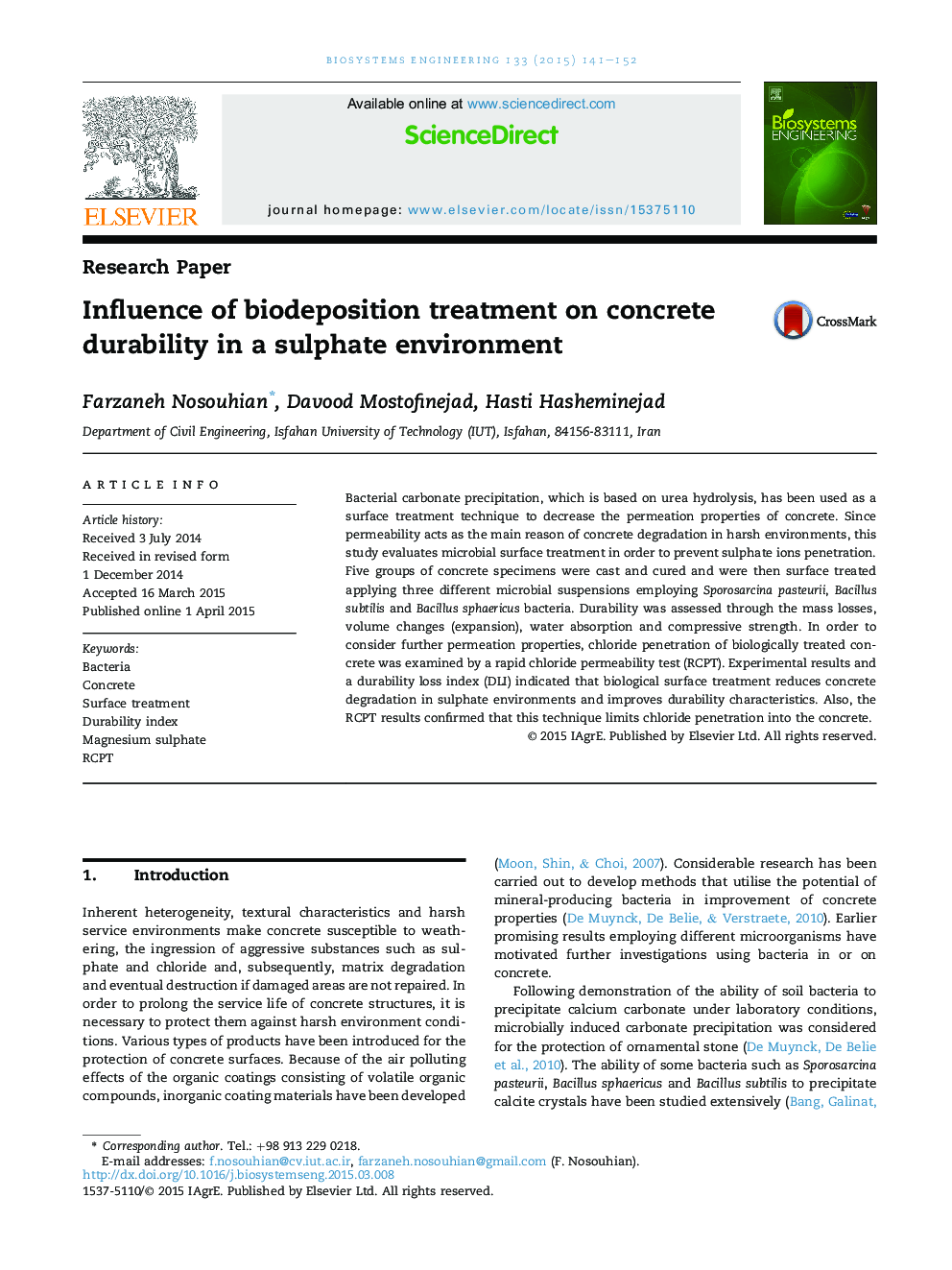| Article ID | Journal | Published Year | Pages | File Type |
|---|---|---|---|---|
| 1711042 | Biosystems Engineering | 2015 | 12 Pages |
•Concrete durability measured after biodeposition treatment and sulphate exposure.•Three different bacteria producing calcium carbonate were considered.•Mass changes, expansion, absorption and strength examined in a sulphate environment.•Chloride permeability deposited layer assessed by rapid chloride permeability test.•Biodeposition can improve concrete durability in a sulphate environment.
Bacterial carbonate precipitation, which is based on urea hydrolysis, has been used as a surface treatment technique to decrease the permeation properties of concrete. Since permeability acts as the main reason of concrete degradation in harsh environments, this study evaluates microbial surface treatment in order to prevent sulphate ions penetration. Five groups of concrete specimens were cast and cured and were then surface treated applying three different microbial suspensions employing Sporosarcina pasteurii, Bacillus subtilis and Bacillus sphaericus bacteria. Durability was assessed through the mass losses, volume changes (expansion), water absorption and compressive strength. In order to consider further permeation properties, chloride penetration of biologically treated concrete was examined by a rapid chloride permeability test (RCPT). Experimental results and a durability loss index (DLI) indicated that biological surface treatment reduces concrete degradation in sulphate environments and improves durability characteristics. Also, the RCPT results confirmed that this technique limits chloride penetration into the concrete.
